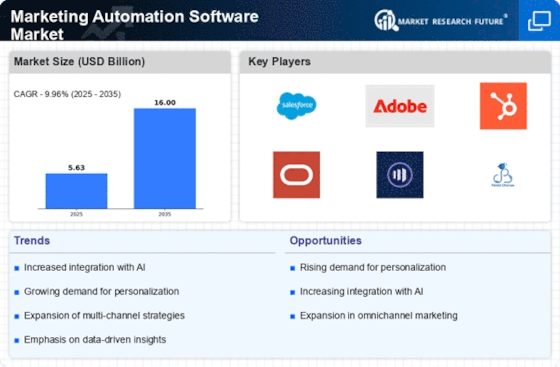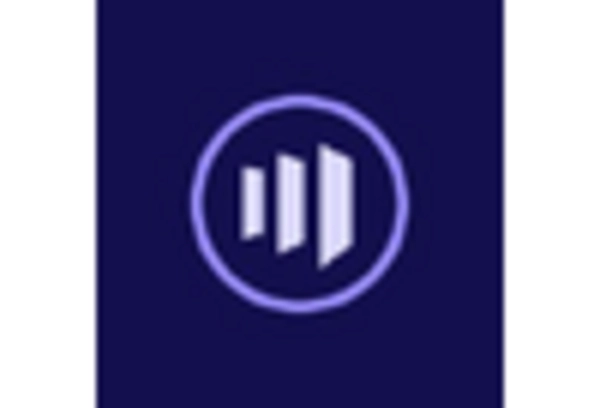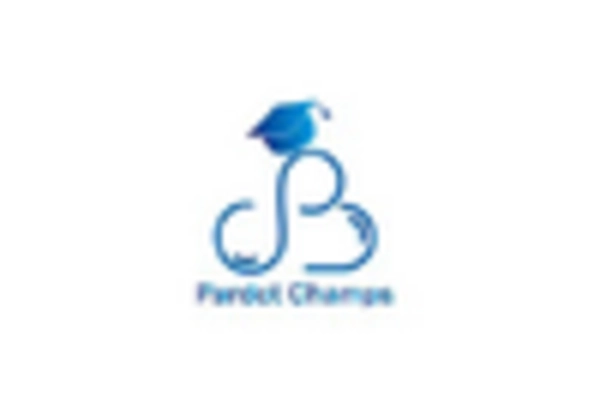Market Trends
Key Emerging Trends in the Marketing Automation Software Market
Companies use market share positioning tactics to obtain a competitive edge and grow their impact in the ever-changing Marketing Automation Software Market. Companies use differentiation to set themselves apart from rivals by emphasizing distinctive features, capabilities, or industry-specific solutions. This technique attracts a specialized audience and delivers extra value.
Companies also rely on product innovation to increase market share. Marketing automation software companies may anticipate industry demands by adding new features, functions, and connectors. This proactive strategy attracts new clients and keeps old ones, building loyalty and confidence.
Pricing tactics are also important for market share positioning. Some firms price their products similarly to competitors to attract budget-conscious buyers. Some use premium pricing to highlight their software's higher quality or sophisticated features. Balance perceived value with price to succeed in a market where cost-effectiveness is important to purchasers.
Strategic alliances and cooperation help marketing automation software suppliers gain market share. These providers can increase their reach and offer more complete solutions by partnering with other technological businesses, agencies, or industry influencers. Partnerships often lead to tool integrations or client expansion, increasing market penetration.
Additionally, market share positioning depends on good marketing and branding. A strong brand identity and effective marketing efforts may boost a company's market presence. Building a favorable brand association draws new customers and retains existing ones.
Customer service and support initiatives help marketing automation software companies gain market share. Excellent customer service improves the client experience and generates favorable word-of-mouth recommendations and evaluations, which can sway potential purchasers. Customer happiness, loyalty, and market share increase can result from timely and effective customer service.
Geographic expansion is a final market share positioning strategy. Marketing automation software demand is rising worldwide, so organizations may enter new markets or increase their position in existing ones. In varied and changing marketplaces, adapting products and services to regional demands might help capture market share.


















Leave a Comment